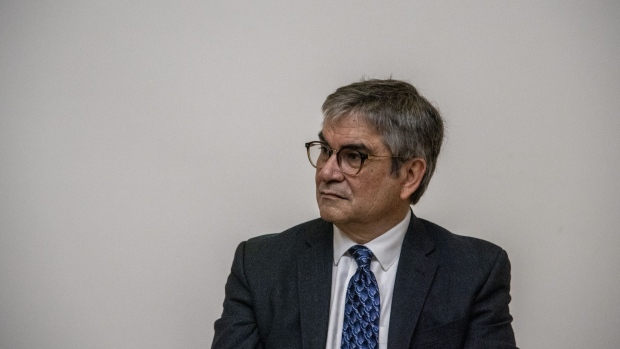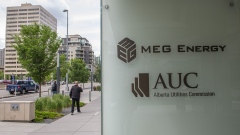Oct 14, 2022
Chile Ready to Step Up Social Aid Ahead of Recovery, Marcel Says
, Bloomberg News

(Bloomberg) -- Chile’s government is preparing measures to boost productivity and stands ready to step up aid to the poor ahead of an economic recovery that won’t kick in before May of next year, the nation’s finance minister said in an interview.
“We are going to keep on working to get ahead of particularly tough times for families with fewer resources,” Mario Marcel, said on Friday while in Washington for the World Bank and International Monetary Fund annual meetings. “We have the willingness and, within our budget, the ability to reassign and mobilize resources in that regard.”
The University of Cambridge-trained economist is trying to steer one of Latin America’s richest nations out of a sharp downturn, without fueling annual inflation that is running at more than four times the target level. This year he has slashed government spending, and recently announced a modest 4.2% increase in expenditures above inflation for next year.
The government will unveil proposals to improve productivity in the next few weeks, Marcel said, without giving details.
The central bank expects gross domestic product to contract by as much as 1.5% next year as both domestic demand and investment drop. Its a remarkable shift after the record-breaking, stimulus-driven surge of 11.7% in 2021.
Mining Royalty
Financial markets cheered Marcel’s appointment in January on views that he would bring economic moderation and fiscal responsibility to the leftist administration of President Gabriel Boric. He had won accolades in prior roles including central bank president and government budget office director.
In his first months in his new position, Marcel became the chief architect of Boric’s flagship economic plan, a tax reform that envisions raising levies on the rich to increase funding for services such as healthcare and pensions. He has also taken the lead in presenting the plan before legislators.
Next week, the government will present changes to its mining royalty proposals, including reducing the sales tax component, making amendments to brackets in the tax on profit and introducing depreciation as a factor in the latter, he said.
“We are going to create a proposal that will generate income that’s relatively similar, given the long-term copper price we are working with, and also taking into account the production and cost outlook in the industry,” Marcel said.
Moderate Constitution
There are no shortages of challenges in Chile’s outlook, as evidenced on Wednesday when the central bank delivered its 11th interest rate hike and said that was the end of its tightening cycle. While policymakers said inflation readings have been worse than expected and consumer price forecasts remain above target, they also noted a slowdown in consumption, job creation and bank credit.
Lawmakers are in the midst of negotiations on how to proceed with changes to the nation’s constitution after a proposed new charter was rejected in last month’s referendum. Any sign of slow progress on the country’s charter, coupled with a weak economy, may threaten to revive social unrest that exploded in 2019.
While the talks are on-going, there are signs the process will more agile and better-structured than last year’s Constitutional Convention, making it easier to reach agreements, Marcel said.
“Everything seems to indicate that the process is heading toward a new constitutional proposal that’s more moderate,” he said.
©2022 Bloomberg L.P.








